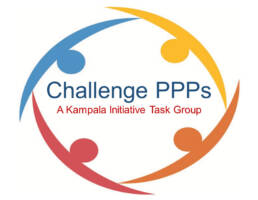Challenging the Role of the Private Sector in Global Health: A Civil Society perspective on “Public Private Partnerships in Health”
Public Private Partnerships emerged years ago and have been viewed as an important way to help developing country governments to raise resources to finance the realization of their country’s development goals including the Sustainable Development Goals, among others.
The history of PPPs can be rooted in decisions that were made during the first International conference on Financing for Development in Mexico in 2002, in which the business community was for the first time invited to join in the discussions of the Monterrey Consensus, which they actively supported.
Due to national budget constraints in many developing countries and changes in the international aid architecture, PPPs are growing at a much faster rate than earlier anticipated. They are now being viewed as major intervention for mobilizing private investment capital to bridge the gap in development financing, and have become a widely used model for investing in global health as heavily promoted by institutions like the World Bank Group (WBG)
At a civil society workshop on “How to advance cooperation and solidarity within and beyond aid” that took place in Kampala on 15-16 November, 2019, it was emphasized that the current PPP models posed major threats to the realization of Global health goals. Amongst the major implications highlighted was the rapid escalation in the cost of health services provided; and financial risks being skewed towards the government side. This was also coupled by a worsening debt situation that has led to health budgetary allocations being shifted towards debt repayments.
The working group examining the PPP case agreed that various aspects in the narrative needed to be examined, reviewed and the value add quantified. The analysis further prompted the group to call for civil society attention to challenging the role of the private sector in global health.
Civil Society Principles for ODA-funded Private Sector Engagement in Global Health
On 22 November 2022, STOPAIDS and the Kampala Initiative Working Group on Public Private Partnerships jointly organized an interactive webinar to launch the “Civil Society Principles for ODA-funded Private Sector Engagement in Global Health”.If you were unable to attend live or wanted to re-watch the discussion, you can find it here.
- The principles can now be downloaded on STOPAIDS’ website here. If your organisation would like to endorse the principles and have your logo listed on the paper, you can add your support here or write to james@stopaids.org.uk.
The principles argue that Private Sector Engagement in Global Health must:
- Not undermine public healthcare provision
- Be driven by patient centred needs and social accountability for health rather than commercial interests
- Have a demonstrated public health impact, be evidence based and adhere to the principle of equitable access to services
- Have strong transparency and accountability mechanisms in place in line with the principles of aid effectiveness.
- Support and promote human rights, workers’ rights, the rights of women and girls and all marginalised groups.
- Not be used to promote private sector investment in health in countries where there is not effective regulation of the private health sector

“Challenge PPPs” is a task group of the Kampala Initiative. We invite interested civil society to consider joining our group: If you have endorsed the Kampala Declaration and think that you are able to contribute actively to this group’s work, please send an expression of interest to Denis Bukenya denisbukenya@huric-international.org or James Cole James@stopaids.org.uk with the following information:
- Your name, country of residence/work and institutional affiliation
- Your background and interest in the task group
We will then, as a start, share the group’s Terms of Reference and initial work plan with you. Please note that we aim to ensure that there is equal regional representation within this group.

